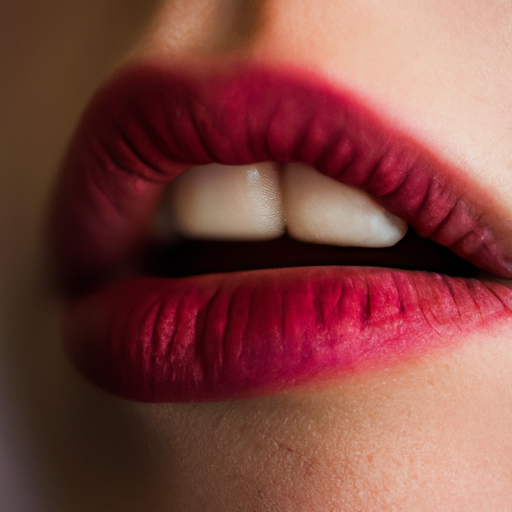As a dermatologist, I am often asked about the causes and remedies for chapped lips. This common condition, medically known as cheilitis, can be a source of discomfort and embarrassment for many people. However, the reasons behind chapped lips are not as straightforward as they might seem. It’s not just about cold weather or lack of lip balm; there are several surprising factors at play.
Firstly, it’s important to understand that our lips are different from the rest of our skin. They lack the protective outer layer (stratum corneum) and oil glands that keep our skin moisturized. This makes them more vulnerable to environmental factors such as wind, sun, and cold weather, which can cause them to become dry and cracked.
However, these are not the only culprits. One of the most surprising causes of chapped lips is dehydration. When our bodies are dehydrated, our skin, including our lips, can become dry. Therefore, drinking plenty of water and staying hydrated can help keep your lips moisturized from the inside out.
Another unexpected cause of chapped lips is certain medications. Drugs such as acne medications or those used to regulate blood pressure can have side effects that include dryness of the skin and lips. If you’re experiencing chapped lips and are on medication, it’s worth discussing this with your doctor or pharmacist.
Moreover, many people are unaware that their oral hygiene products may be contributing to their chapped lips. Toothpaste, mouthwash, and other oral care products often contain ingredients like alcohol and sodium lauryl sulfate that can dry out your lips. If you notice your lips becoming chapped after brushing your teeth or using mouthwash, consider switching to a product with more natural ingredients.
A less known fact is that certain vitamin deficiencies can also lead to chapped lips. Vitamins B2 (riboflavin), B3 (niacin), B6 (pyridoxine), and B12 are particularly important for skin health. A deficiency in any of these can result in dry, cracked lips. Therefore, maintaining a balanced diet rich in these vitamins can help prevent chapped lips.
Lastly, it might come as a surprise that licking your lips can actually make them more chapped. While it might seem like a good idea to moisten dry lips with saliva, this can actually make things worse. Saliva evaporates quickly, leaving your lips drier than before. Moreover, our saliva contains enzymes that are meant to break down food but can also irritate our lips.
So, how can we combat chapped lips? Firstly, stay hydrated and maintain a healthy diet. Secondly, protect your lips from harsh environmental conditions by using a lip balm with SPF. Choose one that is free from irritating ingredients like fragrances and menthol. If you’re on medication, discuss the side effects with your doctor. And finally, resist the urge to lick your lips.
In conclusion, the truth behind chapped lips is a complex interplay of environmental factors, personal habits, and health conditions. Understanding these can help us take better care of our lips and prevent the discomfort of chapping. However, if you have persistent chapped lips that don’t improve with home remedies, it’s important to consult a dermatologist to rule out any underlying conditions.
Unraveling the Mystery: The Surprising Truth Behind Chapped Lips



